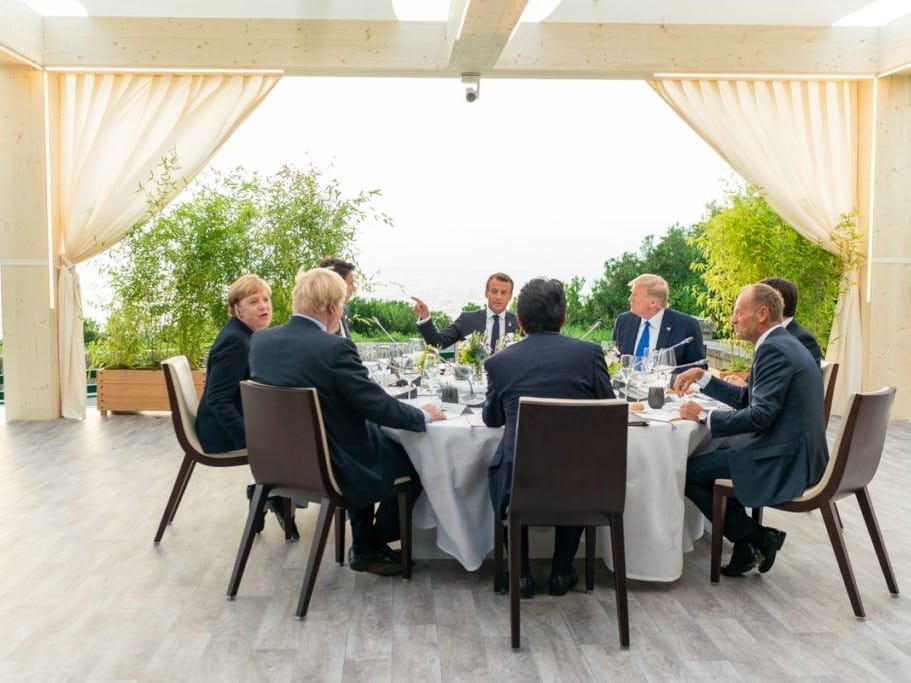Leaders of the Group of Seven rich democracies wrapped up a three-day summit with little progress in resolving tensions over U.S. President Donald Trump's trade policies, a troubled world economy, the climate crisis and fraying Iranian nuclear deal.
But the G-7 summit in the Atlantic beach resort of Biarritz, France — overshadowed by fears of an escalating trade war between the United States and China that could send a slowing global economy into recession — ended on Monday with modest progress over Amazon's rainforest fires, a potential Iran meeting and digital taxes.









